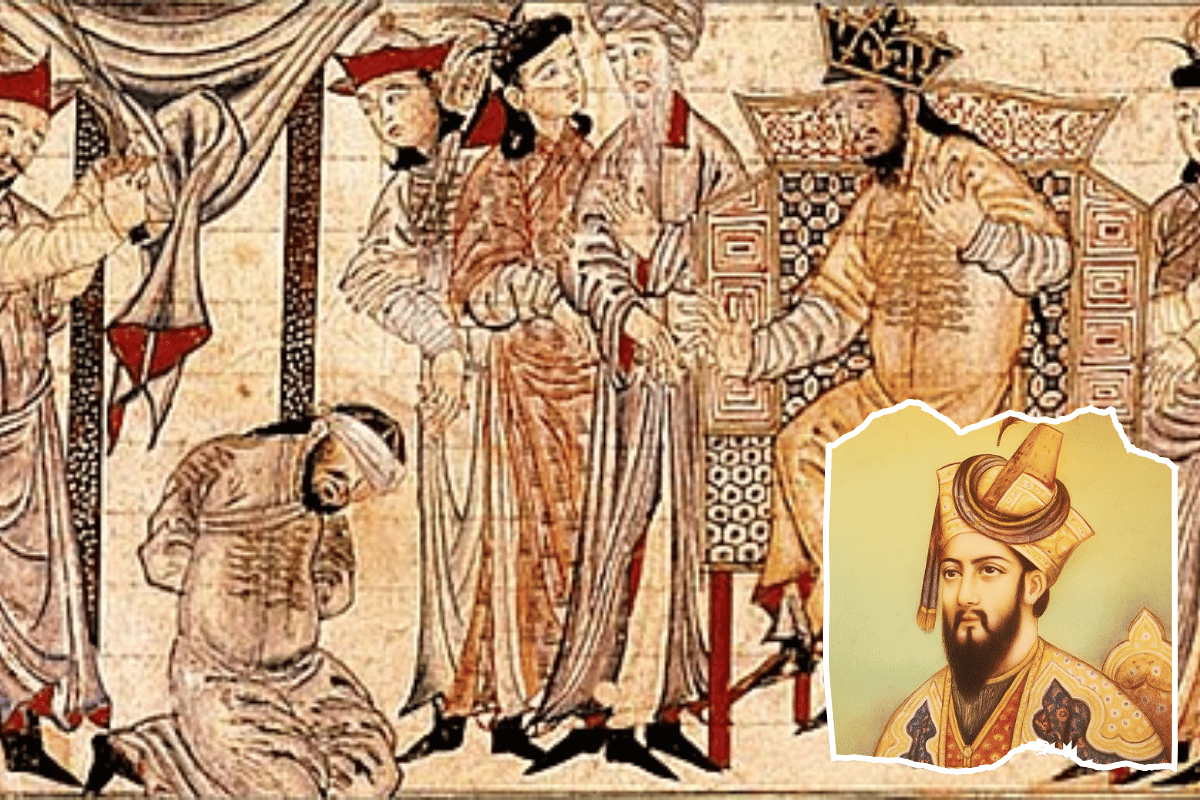
“Understanding the true essence of Dharma and following the principles of righteous rule (Rajdharma), this girl will immortalize her family name across the world” — it’s as if Malharrao Holkar had received such a divine sign.

While traveling from Indore to Pune, Malharrao saw a devout girl coming out of a temple. He proposed her marriage to his son Khanderao through her father, Mankoji Rao. There was no question of refusal. Malharrao Holkar was a respected and capable commander under the Peshwas. His choice was so right that it changed history forever. This girl became Ahilyabai Holkar — maiden name Shinde, born in the village of Chondi, Taluka Jamkhed, District Ahilyanagar (31 May 1725 – 13 August 1795).
At the age of 8, Ahilyabai entered the Holkar household, beginning a remarkable journey that earned her the title “Punyashlok” (a person of sacred merit). Her father taught her in childhood; Malharrao himself taught her the nuances of governance and politics. Life brought her many personal tragedies — the loss of her husband, then her father-in-law (Malharrao), and eventually her young son. Yet she stood firm, managing the state with wisdom and expanding the Maratha Empire’s honour across India. Wherever you go on pilgrimage in India, her legacy is evident.
Malharrao had entrusted her with administrative duties, which she carried out with such transparency and justice that the people themselves requested she continue ruling. Hence, the Peshwas formally gave her leadership of the Malwa province. Through her rule, she exemplified the ideal of Swarajya (self-rule) as envisioned by Chhatrapati Shivaji Maharaj.
“Punyashlok” — one who earned eternal merit through righteous actions. She was a valiant warrior, protector of Dharma, visionary ruler, sharp politician, reformist, and compassionate administrator. Skilled in horse riding and weaponry, she even led from the battlefield. She fought superstitions with rational reform.
Rule for 30 years
She worked for the welfare of her people — opposing the Sati system, granting widows rights to adoption and property, and giving women a place in the military. While choosing a groom for her daughter, she declared that caste wouldn’t matter — whoever could eliminate dacoits and goons would win her daughter’s hand. And she kept her word. Her aim was to ensure public safety and fearlessness.And she ensured farmers, traders, and citizens lived peacefully. She brought artisans to her capital, Maheshwar, gave them protection, support, and promoted their crafts. As a result, thousands found employment, and the famous Maheshwari saree continues to be renowned nationally and internationally.
She built many forts, roads, pilgrimage facilities, stepwells, wells, and dharamshalas (rest houses) across the state and India. She restored temples and established religious management systems. She beautified her first capital, Indore, and later developed Maheshwar into a great city. She encouraged both agriculture and business, implemented a just tax system, and ran a transparent administration that increased state revenues. Her court welcomed artists and scholars, like Anant Phandi and Moropant. She built an atmosphere of safety and prosperity, digging hundreds of wells and ponds for farmers. A devout follower of Lord Shiva, she moved the capital from Indore to Maheshwar, where she held court with a Shivling in her hand — dispensing justice with divine consciousness.
She built ghats along rivers, renovated temples, and established dharamshalas at pilgrimage centres. Wherever you go in India — Kashi, Badrinath, Kedarnath, or Ayodhya, you will find her mark. That’s why Ayodhya today has a statue honouring Ahilyabai Holkar. She rebuilt a Shiva temple near the ruins of Somnath destroyed by Mahmud of Ghazni, symbolising her vision of instilling faith in Swarajya. Similarly, she helped restore Kashi Vishwanath and many other temples. Her devotion and generosity earned her the title of “Devi” (Goddess) in people’s hearts.
Even today, Indore and her beloved Maheshwar on the banks of the Narmada stand as monuments to her legacy. People from across the world visit Maheshwar to witness the legacy of this great queen of the Maratha Empire.
On her birth anniversary, we offer heartfelt tributes to the revered and brave Queen Ahilyabai Holkar — the Punyashlok.









